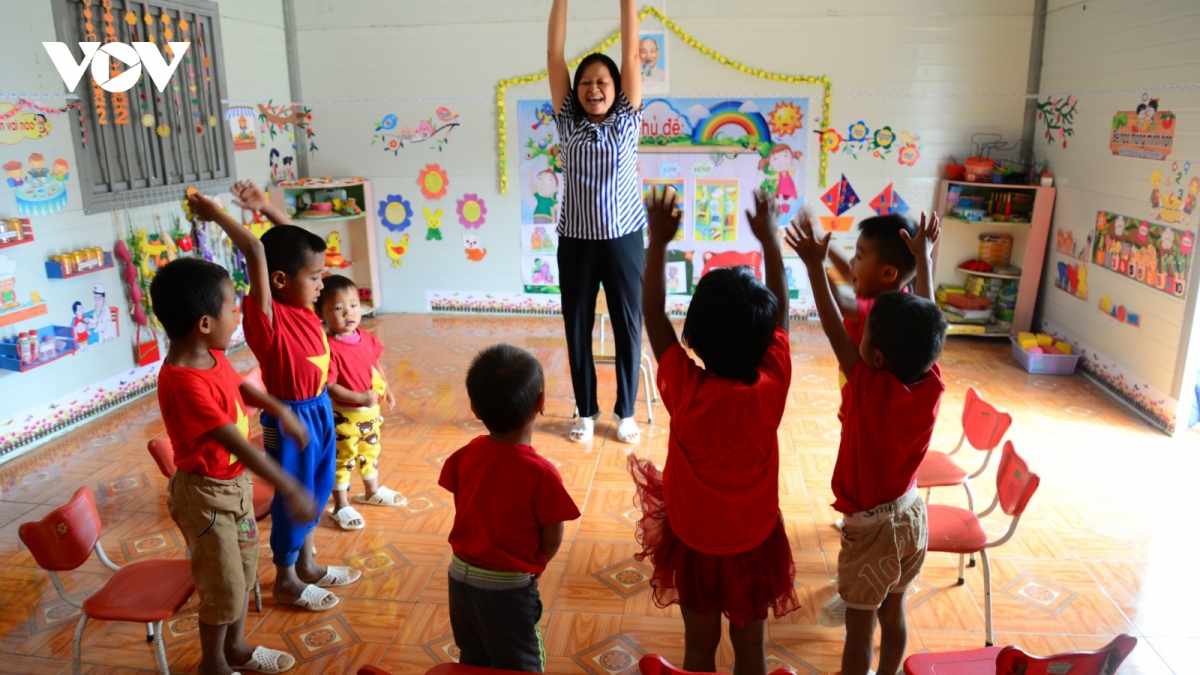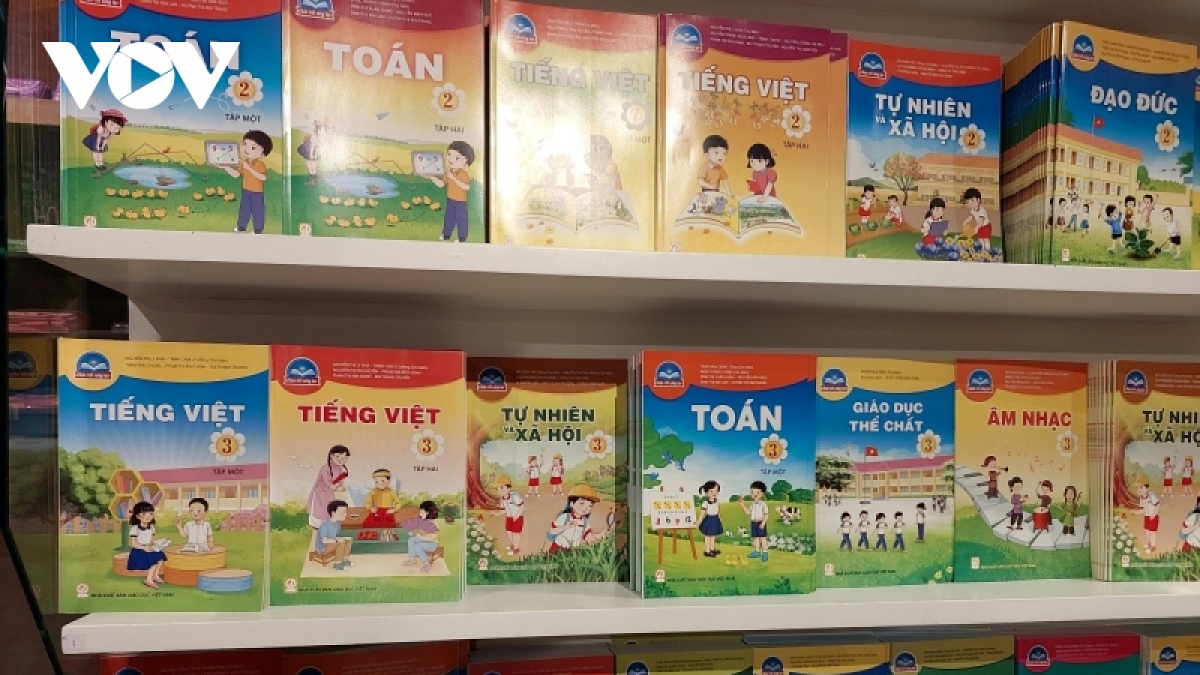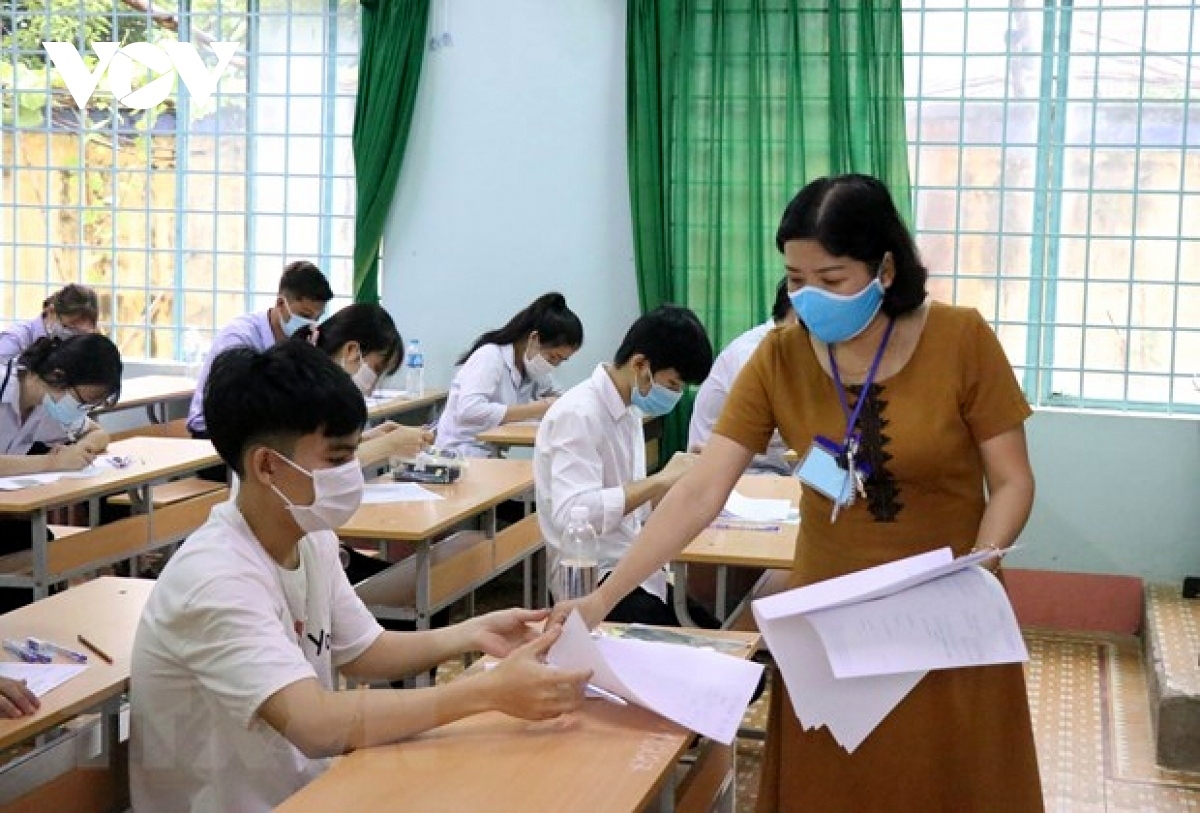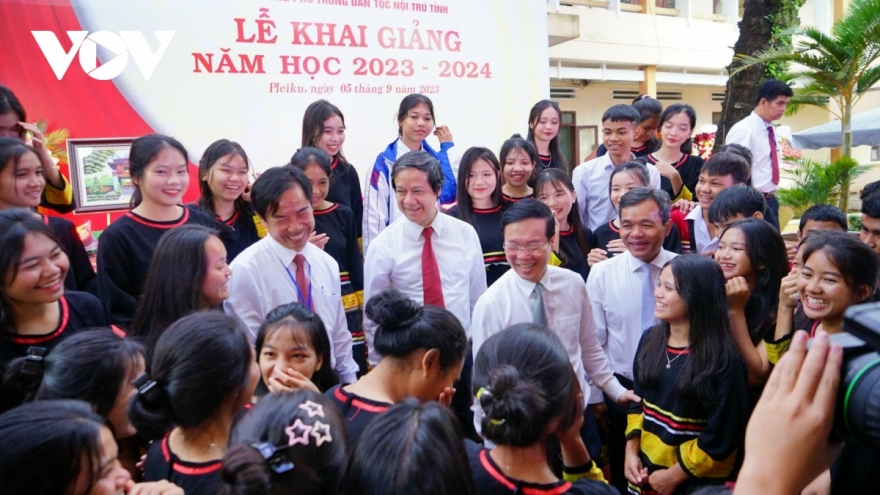Five challenges for Vietnamese education in new school year
VOV.VN - With more than 23 million students of all grades beginning a new school year, the Vietnamese education sector is facing several major challenges, ranging from a chronic shortage of teachers to the renewal of examinations, all of which cannot be dealt with overnight.
Chronic shortage of teachers

Statistics unveiled by the Ministry of Education and Training show that Vietnam currently has as many as 1,234,124 preschool and primary and high school teachers, although it still lacks nearly 120,000 classroom teachers.
Furthermore, the number of teachers quitting work is causing a headache for the education sector. More than 40,000 teachers have registered to leave school over the past three years, with 9,295 recorded in 2022 alone. Most of them, mainly in Hanoi, Ho Chi Minh City, Da Nang, Dong Nai, and other localities, moved to work at private schools or into other fields to earn higher incomes.
The structure of the teaching staff is also imbalanced between subjects at the same educational level and between regions with different socio-economic conditions. The situation remains common in many localities, especially for teachers teaching new subjects such as English, Information Technology, Music, and Fine Arts.
Meanwhile, the number of children going to school in the 2022 to 2023 school year increased by an additional 132,245 individuals, meaning about 5,500 more teachers were needed to fill out the vacancies. Along with this, 4,500 more teachers should have been supplemented to the teaching structure as primary schools offered two learning sessions a day, while high schools increased by 669 more classes compared to the previous school year.
New general school programme in controversy

Vietnam is entering into the fourth school year and is deploying a new general education programme for grades 4, 8, and 11, but the implementation of the integrated subjects model remains controversial.
According to the new programme, secondary school students no longer study Biology, Physics, Chemistry, History, and Geography individually. Instead, they study the two subjects of Natural Sciences and Social Sciences (History and Geography), which are called integrated and interdisciplinary subjects.
Most teachers find it difficult to integrate Natural Sciences and Social Sciences subjects, while they are trained to teach each subject. Currently, many schools allow their teachers to teach subjects separately, thereby failing to meet the target set out by the education sector.
Education Minister Nguyen Kim Son has admitted that the teaching of integrated and interdisciplinary subjects remains one of the main difficulties in deploying the new general education programme.
“It’s highly likely that we will make some changes to the teaching of integrated and interdisciplinary subjects at secondary schools,” said the Minister, adding the Ministry will consult more experts for consideration.
Separate set of textbooks?

In August, Prime Minister Pham Minh Chinh requested that the Ministry of Education and Training urgently address limitations and inadequacies pointed out by lawmakers in deploying the new textbooks programme, including the compilation of a set of State textbooks.
Whether or not the Ministry will compile a separate State set of textbooks has aroused public controversy. Currently, the country has six publishers and three organisations who are authorised to engage in compiling textbooks in order to help save the State budget.
“If the Ministry of Education and Training compiles another set of textbooks now, it will limit socialization, cause unfair competition and cost society more, and more importantly it will cause our anti-monopoly policy to fail,” said Dr. Nguyen Hong Quang of the Hanoi National Teachers’ Training University.
Education Minister Son even wondered if a separate set of State textbooks is needed, explaining that learning materials are diverse for both students and teachers. In his opinion, the compilation of another set of textbooks not only greatly impacts the policy of socialisation, but also the spirit of innovation that the sector is pursuing.
Universities in difficulty without tuition hike
In July, the Government requested that the Ministry of Education and Training urgently amend Decree 81 in the direction of not increasing tuition fees for students in the 2023 - 2024 academic year.
Although the new school year has begun, the Ministry of Education and Training has yet to issue a new tuition policy, causing difficulties for universities. In addition, this is the third consecutive year that the Government has asked the education sector not to hike tuition fees, making it difficult for universities to operate stably.
Moreover, universities have to set aside between tens to hundreds of billions of VND each year more in their budget in order to pay teachers, when the new base salary for State workers rises by 20.8%, starting in July.
Amid this context, universities have decided to cut their spending on planned activities, including meetings and conferences, in order to maintain a steady salary for their employees.
“Indeed, tuition fees make up between 50-90% of a university’s revenue, and without increasing tuition fees poses a great challenge to the university,” said Education Deputy Minister Hoang Minh Son.
“The Ministry will ask the Government for a support programme similar to that for businesses impacted by COVID-19,” he added.
New graduation exam plan

At the request of the National Assembly, the Government and the Ministry of Education and Training are set to soon complete a plan aimed at organising high school graduation exams from 2025 onwards according to the new general education programme.
Under the draft plan on graduation exams, 12th graders will do four compulsory subjects (Mathematics, Literature, a Foreign Language, and History) and two of the seven optional subjects (Physics, Chemistry, Biology, Geography, Economic and Legal Education, Informatics, and Technology). Literature is still the only subject with essay tests on paper, while the remainders are in the form of multiple choice.
“From 2025 onwards, students will do the same tests on the same day, and this method meets the requirements of the new education programme and supports students in choosing subjects for graduation exams,” said Education Minister Son.
Most students and teachers expect the Ministry will soon issue a new graduation exam plan to help students to choose appropriate subjects when they are in grade 10. In fact, teachers are also confused about how to teach, how to test, and how to evaluate their students’ qualifications without any specific instructions from the ministry.

